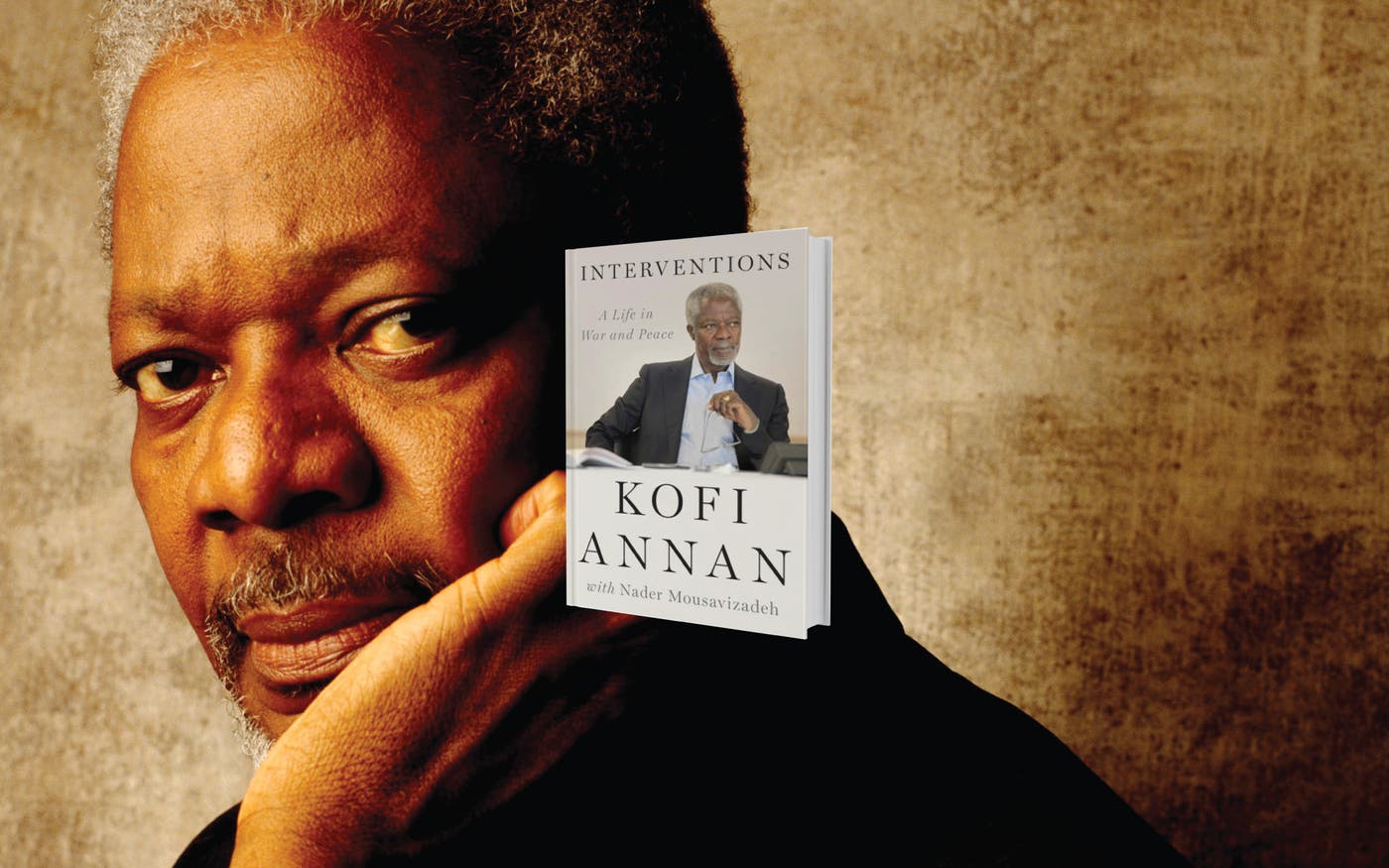
At the U.N.
Kofi Annan recalls 10 years at the United Nations
An illuminating look at the role of Secretary-General of the United Nations.

I’ve met former Secretary General Kofi Annan several times and admire his work—particularly on behalf of Africa—a great deal. In fact, I was a bit envious when Melinda recently had the opportunity to spend several days with him on an agricultural learning trip to Tanzania.
Annan served as Secretary-General of the United Nations for 10 years. In 2001, he received the Nobel Peace Prize—along with the UN—for his efforts to reform the organization, his commitment to human rights, and his commitment to tackling terrorism and HIV/AIDS.
Only after reading his recently-published book, Interventions: A Life in War and Peace, did I get a true sense of how difficult a job he had. As a voluntary organization of 192 states, it’s easy to criticize the effectiveness of the UN, but without it, we would be substantially further behind on issues of global health and development.
It was helpful to learn about the other side of Annan’s work at the UN—peacekeeping issues and the work of the Security Council. It is clearly very challenging work. One day, the Secretary-General has to be an impartial arbiter of disputes among member states. The next, he has to challenge member countries he believes are not acting in the interest of world peace. Surviving in that position for 10 years says a lot about Annan’s diplomatic skills.
For all of the difficulties he experienced on the peacekeeping side of the equation, his work on development and global health can’t be emphasized enough. In 2000, during Annan’s tenure, the Millennium Development Goals (MDGs) were agreed to by all UN member countries and 23 international organizations. The MDGs are an ambitious set of goals for reducing poverty and child mortality rates, and fighting diseases that sap the socioeconomic potential of poor countries. (I’m writing my annual letter at the moment, and I’m talking about the MDGs in more detail there, so it’s top of mind for me at the moment.)
Although a number of countries won’t be able to achieve all of the goals by the target date of 2015, the MDGs provide clear targets and indicators of progress in key areas, such as ending poverty and hunger, ensuring universal education, gender equality, improving child and maternal health, combatting HIV/AIDS, environmental sustainability, and strengthening global development.
Annan also played an important role in creating the Global Fund to Fight AIDS, Tuberculosis and Malaria—the main funder of efforts to fight three of the world’s biggest health challenges.
For anybody who wants to understand the complexities of the role of the Secretary General, this book is an illuminating read.


